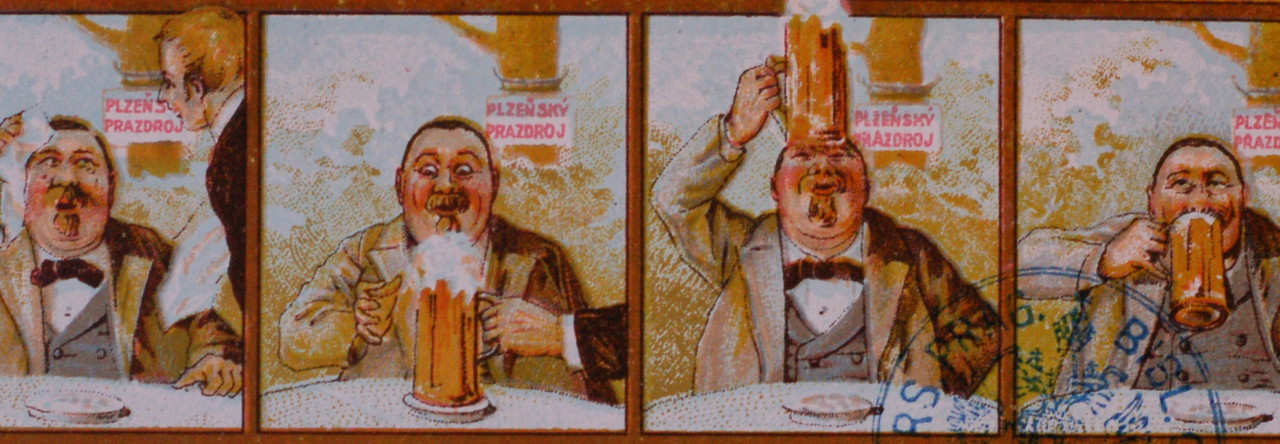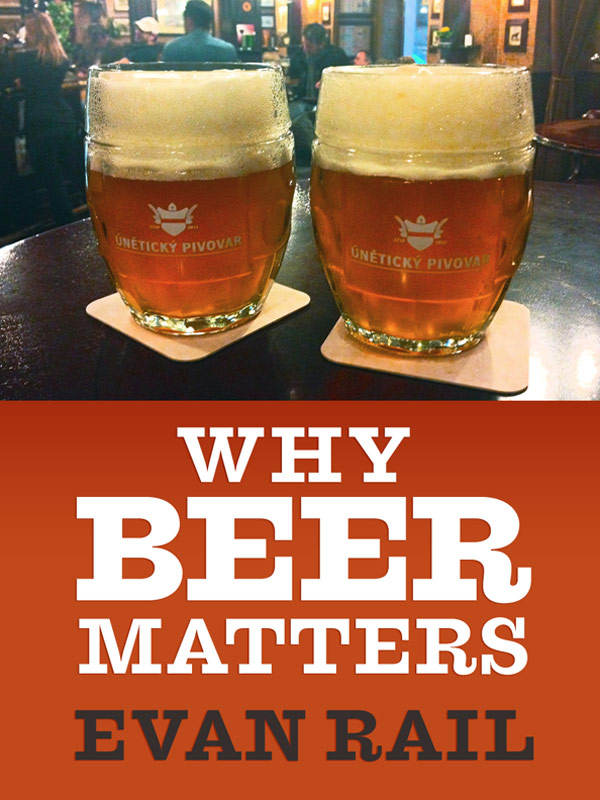Stan Hieronymus has a note on the first use of Žatecký chmel (Saaz hops) as a protected designation of origin. According to a press release from the Hop Growers Union of the Czech Republic, the 2007-2008 vintage is the first hop harvest to use the term that is now protected by European Union law, the first such protection for a hop varietal in the EU.
Of course, several types of beer have protected designation of origin status within the EU, the most important of which (in Czech terms) is “Budějovické pivo.” I’ve written before about an earlier push for a protected name status on Pilsner, which failed.
Just to provide a little historical background, I wanted to mention that there was already a push for the use of “Žatecký chmel” as the correct term for Saaz hops way back in 1922, a move which caused quite a bit of controversy at the time. In fact, if you squint just a little, the use of that term can be seen as one of the many small events that brought about World War II.
The picture above is a New York Times headline from April 23, 1922. According to the accompanying article, the new Czechoslovak government was “insisting” on a plan to “wipe out the ‘Saazer Hopfen,’ ‘Auschaer Hopfen’ &c. labels and replace them with ‘Zatecky chmel,’ ‘Ustecky chmel,’ &c.”
Such linguistic regulation might sound severe, but to put it in context, this was just four years after the newborn nation of Czechoslovakia had been liberated from the German-speaking control of the Austro-Hungarian Empire. After Czechoslovakia’s independence in 1918, there was hardly much chance that the use of the German language would be the Czechs and Slovaks’ first priority.
“The German Bohemian hop producers and traders are protesting vigorously, but apparently vainly, against the Government’s proposal,” the article notes. “They also point out that the German brewers, who have resumed buying in Bohemia since the anti-German export ban was lifted last November, will react unfavorably to any attack upon the German language.”
What was the attack? The Czechoslovak government at the time was proposing a two-year period when hops for export would be labeled first in Czech, then in German. After two years, the German label would disappear from the packages of those hops destined for French- and English-speaking countries. Those hops exported to Germany would still be labeled in Czech and German.
Not good enough, said the Germans.
“The protesting German producers profess to believe that even non-German consumers attach great weight to the German names of the hop districts,” the article continues.

German speakers in the Czech lands believed that this was just part of a larger plan to wipe out their language entirely. It might be hard to believe, but the very same article — an article that is ostensibly about hops and how they are called — continues with the following:
“An underhand move in the Czechoslovak Government’s campaign for the unification of the new republic through the gradual substitution of the Czech language for the German, Slovak, Magyar and Rumanian tongues spoken in various parts of the country is charged by the Prague German paper Bohemia, which avers, on what it calls good authority, that a secret order has been issued by the Government to the political district administrators to eliminate from the jury lists all persons unable to speak the national official language.”
All it would take now is for the German nation to get riled up on behalf of their cousins suffering behind the borders of Czechoslovakia. As in:
“In commenting bitterly upon this alleged order, the Frankfurter Zeitung of March 27 points out that if it becomes effective the inhabitants of such German-speaking towns as Reichenberg, Warnsdorf and Eger will be deprived of the basic right of a trial of their peers, as the great majority of the people there cannot speak Czech.”
And there you have it. Sixteen years after the publication of this article, Hitler would persuade the leaders of France and England to allow him to invade the border regions of Czechoslovakia, the so-called Sudetenland, in order to protect the rights of German speakers there. Then he would invade the rest of Bohemia and Moravia, then Poland.
At least partly over some hops and how they’re called. And eighty-six years later, the argument over how they’re called is still going on.





2 Pingbacks